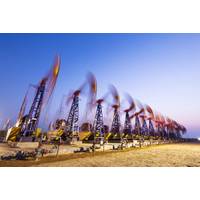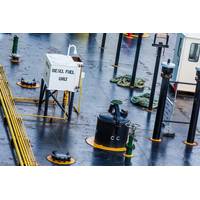Hedge Funds Turn Bearish on Oil: Kemp

By early last week, hedge funds had become the most bearish towards petroleum prices since the start of the year, as traders grew increasingly pessimistic about the global economy.Hedge funds and other money managers sold the equivalent of 95 million barrels in the six most important futures and options contracts tied to petroleum prices in the week to Oct. 8.Sales over the last three weeks have totalled 206 million barrels, according to an analysis of position records published by the U.S.
Lower oil prices start to rebalance the market

Lower oil prices are starting to rebalance the oil market by slowing the rise in U.S. crude output and encouraging Saudi Arabia and its allies to extend production cuts through the end of 2019.U.S. crude production rose 241,000 barrels per day (bpd) to 11.905 million bpd in March from February, according to the U.S. Energy Information Administration (“Petroleum Supply Monthly”, EIA, May 2019).U.S. crude output during the first three months of the year was up 1.575 million bpd compared with the same period a year earlier…
EPIK, Hyundai Join for FSRU Projects
South Korea-based liquefied natural gas (LNG) floating storage and regasification unit (FSRU) project development company EPIK Co. has signed a strategic partnership agreement with Hyundai LNG Shipping, the marine freight transportation services for LNG."The agreement lays out a framework for the two companies to work together in the development of FSRU projects around the globe, including, but not limited to, EPIK’s recently announced Newcastle LNG FSRU import project at the Port of Newcastle…
Maritime Rule Change Stirs Fears of Diesel Shortage: Kemp

The International Maritime Organization (IMO) has so far resisted pressure to soften or postpone the implementation of new regulations requiring ships to use bunker fuels with a lower sulphur content from the start of 2020.That has prompted warnings from some analysts that the regulations will squeeze the availability of low-sulphur diesel and jet kerosene required by trucks, trains, aircraft, farmers and industry, resulting in big price increases.The regulations and any associated rise in fuel prices will occur in the run up to the next U.S.
U.S. Diesel Demand to Rise as Freight, Drilling Revive
Freight movements across the United States are showing signs of sustained growth for the first time in 18 months, which should support increases in diesel consumption in 2017. Freight volumes hit a record in July, passing the previous peak set back in December 2014, according to the U.S. Bureau of Transportation Statistics (http://tmsnrt.rs/2d06tby). The Bureau's freight transportation services index has risen for four consecutive months, after flat-lining or falling for more than a year (http://tmsnrt.rs/2d05mJ5).
U.S. Diesel Demand Flattens as Growth Slows
U.S. diesel consumption has been flat this year after growing strongly in 2013 and 2014, mirroring a slowdown in inland freight movements and the worldwide slowdown in the raw materials sector. Diesel consumption measured by the Energy Information Administration's data on distillate supplied is closely correlated with freight movements measured by the Bureau of Transportation Statistics' transportation services index. The freight transportation services index measures freight movements by road, rail, barge, pipeline and aircraft in ton-miles.
U.S. Diesel Demand Flat as Freight Growth Slows: Kemp
U.S. diesel consumption has been flat this year after growing strongly in 2013 and 2014, mirroring a slowdown in inland freight movements and the worldwide slowdown in the raw materials sector. Diesel consumption measured by the Energy Information Administration's data on distillate supplied is closely correlated with freight movements measured by the Bureau of Transportation Statistics' transportation services index. The freight transportation services index measures freight movements by road, rail, barge, pipeline and aircraft in ton-miles.
Vale Expects to Negotiate Ocean Freight Rates, Cut Costs
Brazilian miner Vale SA expects to renegotiate ocean freight transportation rates in 2016, cutting costs and increasing trade competitiveness, company executives said on a conference call with investors on Thursday. The company expects to produce up to 98 percent of its nickel forecast and 95 percent of its copper forecast in 2015 Jennifer Maki, Vale's head of base metals said on the call. (Reporting by Jeb Blount)
